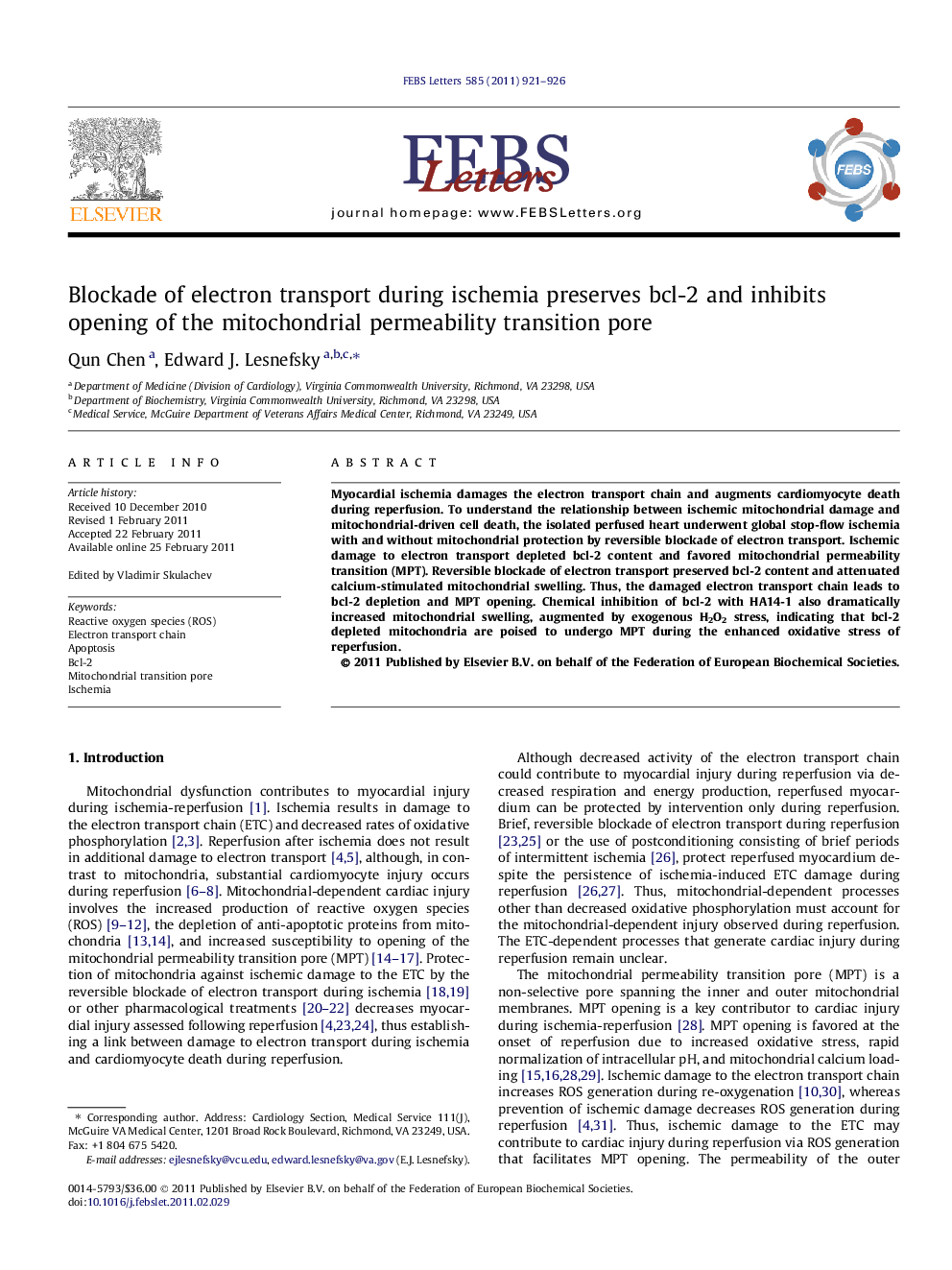| Article ID | Journal | Published Year | Pages | File Type |
|---|---|---|---|---|
| 10871858 | FEBS Letters | 2011 | 6 Pages |
Abstract
Myocardial ischemia damages the electron transport chain and augments cardiomyocyte death during reperfusion. To understand the relationship between ischemic mitochondrial damage and mitochondrial-driven cell death, the isolated perfused heart underwent global stop-flow ischemia with and without mitochondrial protection by reversible blockade of electron transport. Ischemic damage to electron transport depleted bcl-2 content and favored mitochondrial permeability transition (MPT). Reversible blockade of electron transport preserved bcl-2 content and attenuated calcium-stimulated mitochondrial swelling. Thus, the damaged electron transport chain leads to bcl-2 depletion and MPT opening. Chemical inhibition of bcl-2 with HA14-1 also dramatically increased mitochondrial swelling, augmented by exogenous H2O2 stress, indicating that bcl-2 depleted mitochondria are poised to undergo MPT during the enhanced oxidative stress of reperfusion.
Keywords
Related Topics
Life Sciences
Agricultural and Biological Sciences
Plant Science
Authors
Qun Chen, Edward J. Lesnefsky,
